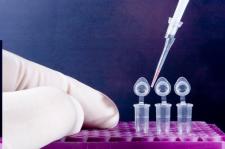Should Heritable Gene Editing Be Used on Humans?
By Marcy Darnovsky & George Church,
Wall Street Journal
| 04. 10. 2016
"YES" by George Church; "NO" by Marcy Darnovsky
The development of technology that allows human genes to be edited has stirred tremendous excitement about the potential for treating debilitating and life-threatening diseases. The technology could lead to drugs that would treat cancers and other diseases that currently are incurable.
But another facet of this breakthrough has many scientists and others worried: the possibility that the genetic makeup of sperm and eggs could be edited so that diseases that can be inherited won’t be passed on to children yet to be born. One concern is that gene editing that affects future generations, not just an individual, is too risky given our still incomplete understanding of the human genome and how changes might affect it. Another is that the ability to edit heritable traits could result in so-called designer babies, with parents choosing traits such as intelligence or physical characteristics.
Others say we can meet those challenges, and the potential benefits are too great to pass up.
George Church, professor of genetics at Harvard Medical School, favors a careful exploration of the potential of heritable gene editing. Marcy Darnovsky, executive...
Related Articles
By staff, Japan Times | 12.04.2025
Japan plans to introduce a ban with penalties on implanting a genome-edited fertilized human egg into the womb of a human or another animal amid concerns over "designer babies."
A government expert panel broadly approved a proposal, including the ban...
By David Jensen, The California Stem Cell Report | 12.11.2025
California’s stem cell and gene therapy agency today approved spending $207 million more on training and education, sidestepping the possibility of using the cash to directly support revolutionary research that has been slashed and endangered by the Trump administration.
Directors...
By Tina Stevens, CounterPunch | 12.11.2025
Silicon Valley and other high tech billionaires are investing millions in start-ups dedicated to creating genetically engineered (GE) babies, according to a recent Wall Street Journal (WSJ) report. AI mogul Sam Altman, cryptocurrency entrepreneur Brian Armstrong, venture capitalist Peter...
By Jenny Lange, BioNews | 12.01.2025
A UK toddler with a rare genetic condition was the first person to receive a new gene therapy that appears to halt disease progression.
Oliver, now three years old, has Hunter syndrome, an inherited genetic disorder that leads to physical...




